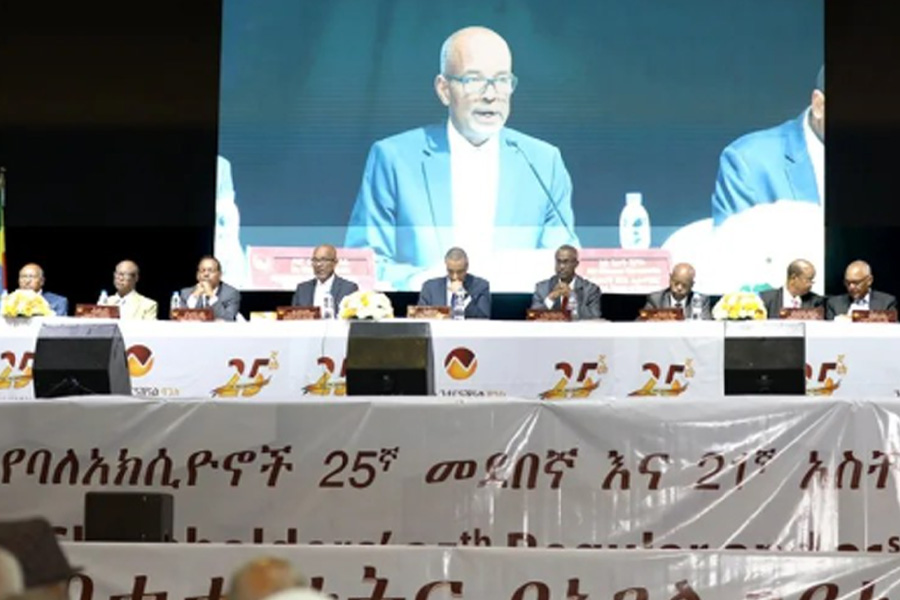
Addis Fortune Press Release | Oct 04,2024
Fuel prices have spiked, exacerbated by global supply disruptions and a weakening Birr, leading to higher transportation and production costs. The federal government has announced close to 10pc increase in retail fuel prices, setting the price of a litre of benzene at 91 Br and diesel at 90 Br.
Retail fuel prices have surged over the past five years, driven by global market dynamics, domestic economic reforms, and a depreciating Birr. The gradual elimination of government fuel subsidies, a policy encouraged by international financial institutions, has shifted the burden onto consumers.
Officials have promised to mitigate the impact on consumers, with the Ministry of Trade & Regional Integration (MoTRI) allocating 300 billion Br for petroleum subsidies, covering 80pc of diesel and 75pc of benzene costs. The subsidy is planned to last for one year, subject to quarterly reviews and possible extension.
“Rates have not increased as feared,” said Ahmed Tusa, an advisor to the Minister, noting the sensitivity of local prices to international market fluctuations.
International oil prices, which had remained stable at around 72 dollars a barrel until April, have recently climbed to 80 dollars. Domestically, benzene was previously priced at 82.60 Br a litre, and diesel at 83.74 Br, with market speculation that prices could surpass 100 Br.
According to Ahmed, public transport service providers would continue to receive additional support beyond the previous 19.50 Br subsidy for a litre. Over the past three years, the federal government has disbursed 197 billion Br in subsidies, along with 30 billion Br allocated for public transport. In the past two months alone, 35 billion Br in subsidies has been paid, with 150 billion Br required for credit payments.
The fuel sector faces problems such as waste and contraband, with an estimated 20pc to 25pc of imported fuels sold in the illicit market. Efforts to digitize the fuel supply chain and introduce GPS tracking for fuel trucks have helped curb some of these challenges, according to Ahmed.
As a net importer of crude oil, Ethiopia is highly susceptible to international price changes. Rising fuel costs are compounded by the Birr's depreciation against major currencies. The depreciation has magnified price increases, making fuel more expensive in local currency. Consequently, retail price increases beginning in 2019 reflect not only international oil trends but also Birr’s floating and economic restructuring.
The impact of the price increases is alarming for gas stations across the country. While it is still early to assess the full impact of the recent price hikes, the ongoing construction projects around the capital have hindered business operations.
Tigist Abebaw, office manager at a NOC gas station around Legehar, noted that the profit margin for retailers increased from 0.23 Br to 0.80 Br over the past year, but remains insufficient given the rising prices.
“It'll be too low even at one Birr,” she said.
Tigist added that the station supplements its income by renting out space for cafés and markets. The digitisation of fuel payments has helped reduce issues such as counterfeit currency and cash discrepancies although occasional outages in payment platforms have posed concern, she said.
Taxi drivers have complained that while fuel prices have risen by around 20pc between September 2023 and July 2024, their tariffs have remained unchanged. According to Ahmed, public transport providers had previously benefited from government subsidies, but minibus taxis are no longer eligible due to difficulties in controlling the distribution of these funds.
Yonas Girma, a taxi driver for seven years used to buy 25ltr of fuel for 2,000 Br. He had to scale back by five litres as the prices kept on going up. He noted that there was no tariff adjustment for some time, while other vehicle-related costs have also surged recently.
"It's become hard to sustain a living," he said.
In the two years beginning in 2019, prices at gas stations showed gradual increases reflecting fluctuation in international oil prices. The notable divergence occurred post-2021 when the federal government accelerated subsidy withdrawal as part of broader economic reforms to bridge fiscal deficits and secure international financial assistance. The shift coincided with the global energy crisis, exacerbated by geopolitical tensions like the Russia-Ukraine conflict, further inflating fuel prices.
Diesel experienced the most pronounced increase with reduced subsidy support and global market reactions adding to a constrained supply chain. As the primary fuel for transporting goods and people, rising diesel prices have had a domino effect, inflating costs across multiple sectors and stoking overall inflation.
Kerosene, widely used by rural households for cooking and lighting, also saw sharp price rises, disproportionately affecting low-income households. The authorities’ decision to reduce subsidies on kerosene, a product often seen as a social safety net, was part of a strategy to ease fiscal pressures.
Tilahun Girma, a financial analyst, argued that the current subsidy framework is unsustainable in the long run. He believes it will not promote productivity or development, while the government loses revenues by continuing to subsidise fuel.
“Subsidies are meant to be short-term relief, not a permanent solution,” he said.
Tilahun emphasized that rising fuel prices could be mitigated by increasing agricultural output and promoting import substitution to generate more foreign currency. He urges reforms focused on boosting foreign currency reserves through increased agricultural production and electric vehicle imports to reduce fuel dependency.
However, there are concerns. Bereket Tesfaye, an e-mobility expert, said that despite the potential benefits of EVs, the lack of infrastructure and high costs of spare parts pose barriers to widespread adoption. He said that banks only provide loans payable in five years for EVs, compared to 10 years for fuel-based vehicles.
"EV adoption requires greater support and investment," he said.
PUBLISHED ON
Oct 13, 2024 [ VOL
25 , NO
1276]

Addis Fortune Press Release | Oct 04,2024

Radar | Dec 01,2024

Radar | Mar 09,2019

Fortune News | Apr 10,2023

View From Arada | Sep 03,2022

Delicate Number | Jun 21,2025

Radar | Jun 08,2025

Life Matters | Dec 02,2023

Fortune News | Jul 19,2025

Radar | Jun 30,2024

Dec 22 , 2024 . By TIZITA SHEWAFERAW
Charged with transforming colossal state-owned enterprises into modern and competitiv...

Aug 18 , 2024 . By AKSAH ITALO
Although predictable Yonas Zerihun's job in the ride-hailing service is not immune to...

Jul 28 , 2024 . By TIZITA SHEWAFERAW
Unhabitual, perhaps too many, Samuel Gebreyohannes, 38, used to occasionally enjoy a couple of beers at breakfast. However, he recently swit...

Jul 13 , 2024 . By AKSAH ITALO
Investors who rely on tractors, trucks, and field vehicles for commuting, transporting commodities, and f...

Oct 25 , 2025
The regulatory machinery is on overdrive. In only two years, no fewer than 35 new pro...

Oct 18 , 2025
The political establishment, notably the ruling party and its top brass, has become p...

Oct 11 , 2025
Ladislas Farago, a roving Associated Press (AP) correspondent, arrived in Ethiopia in...

Oct 4 , 2025
Eyob Tekalegn (PhD) had been in the Governor's chair for only weeks when, on Septembe...